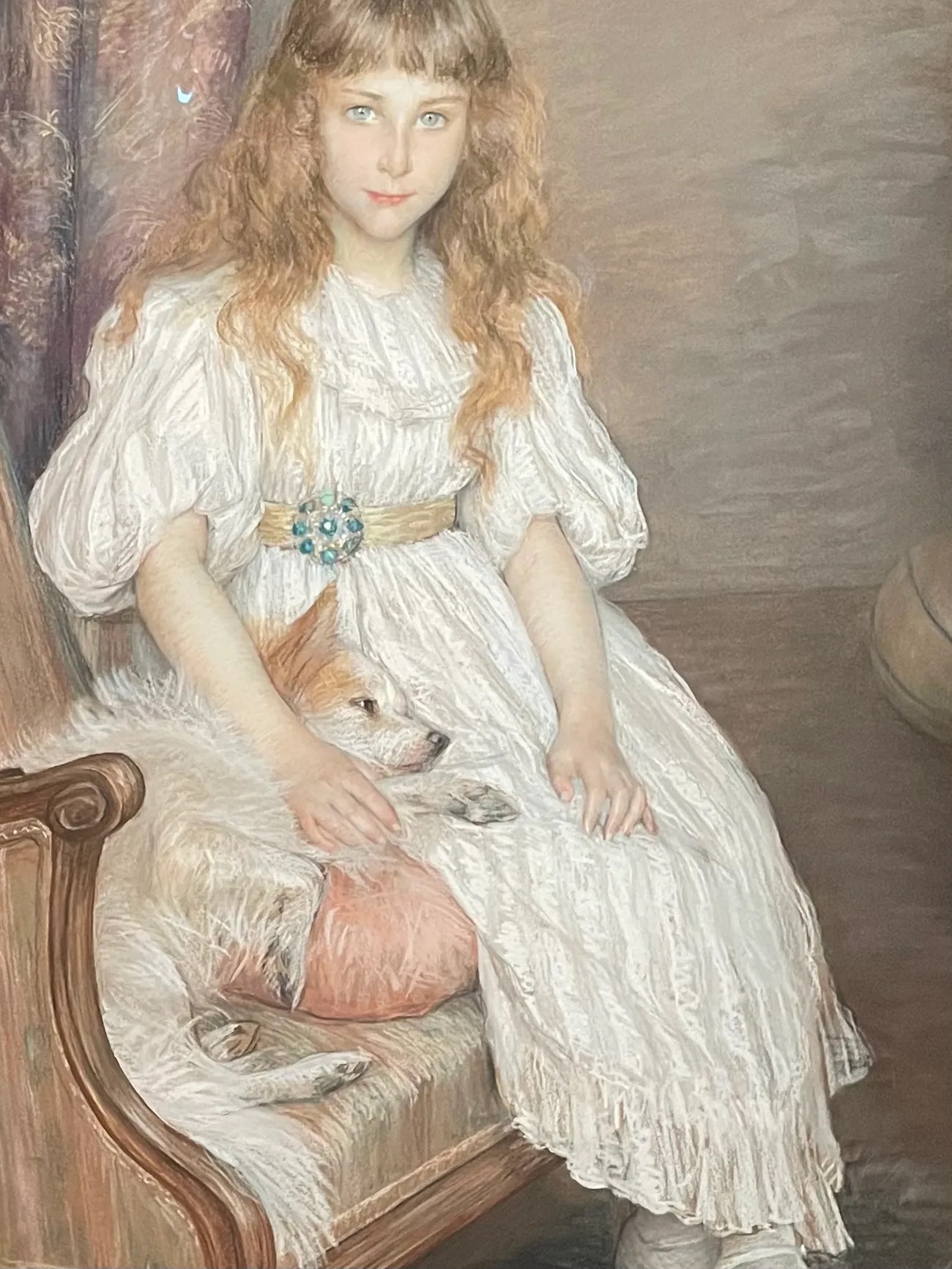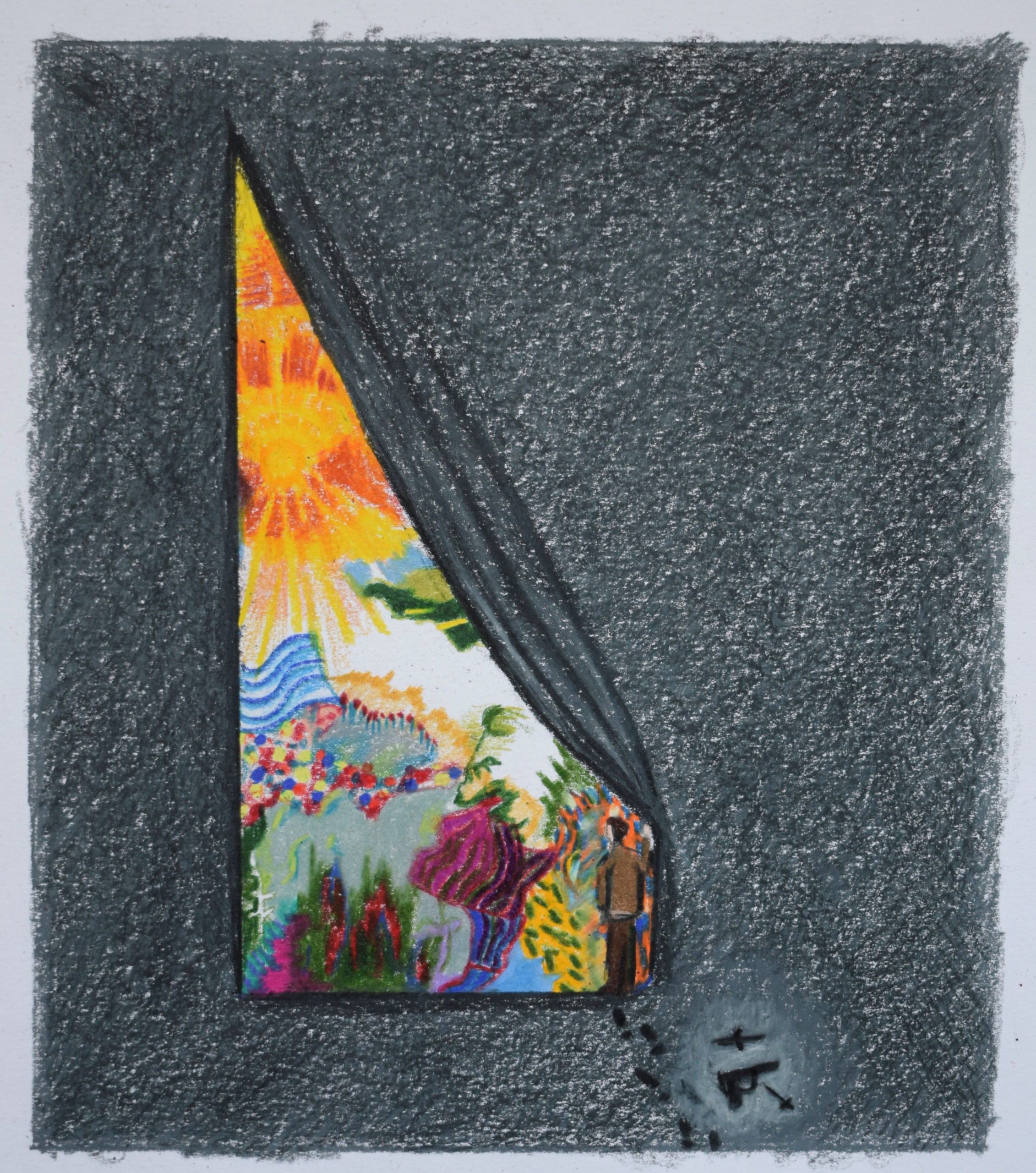
The tradwife complacency pipeline

The internet loves girlhood. More specifically, the internet loves content about girlhood, most often accompanied by pictures of timid looking deer. There are lots of quotes from The Virgin Suicides and The Bell Jar and Little Women. There are lots of pictures of girls, too, if you keep looking. The girls wear knee high socks. They have plaited their hair, and artfully tied pink bows around the ends. Many post selfies where the subject dons a baby-doll nightgown, pouts her lined lips, and raises her expression upwards. Her gaze is one that simultaneously looks for God and offers him a blowjob. This particular genre of content, whether it’s an Instagram Reel or a Substack essay, is usually centred around one catchphrase: “I’m just a girl!”
The phrase is most commonly used by young, adult women satirising the inane complexities of adult life: I’m just a girl, I shouldn’t have to pay taxes! I’m just a girl, I shouldn’t have to make a dentist appointment, or renew my car insurance! By far the most common category of “I’m just a girl” statements has to do with the modern capitalist workplace. Girls shouldn’t have to work a nine-to-five! Girls shouldn’t have to be alienated from their labour!
Underlying the joke is a strong sense of disillusionment with many of the institutions slowly crumbling under our current stage of late capitalism. Entering the adult, professional world today means being faced with a set of increasingly identical, disheartening choices, staged against the backdrop of the world order’s collapse. The corporate workplace is becoming atomised to the extent that it’s almost unliveable. The economy is crashing. Fascism is growing faster than anyone manages to meaningfully oppose it. There are microplastics in everything, and the West turns a blind eye to the genocide being committed in Gaza. It isn’t easy to transition to adulthood at this moment in modern history. Not surprising, then, that we want to remain members of our society’s most vulnerable, most protected class: girls. Thus, our generation’s collective chorus rings throughout the four corners of the Internet: I’m just a girl, I shouldn’t have to [insert dystopian task expected by subjects of late-stage capitalism here]!
Are girls really so protected? The protection of girls is certainly used as a rallying cry regularly enough. In fact, it’s one of the most effective methods fascists use to mobilise well-meaning people. Trans people are coming for your girls’ sports teams. Immigrants are stepping off of small boats and raping your girls. Everyone can get behind a policy that protects the girls.
Anyone who grew up a girl will know that their vulnerability as a class has never afforded them true protection: like the fascists who profit from our society’s instinct to protect girls, most powerful people are not interested in protecting girls so much as they are interested in exploiting them. Most girls are not protected from the evils of capitalism or patriarchy or war: instead, they are their most common, innocent victims. Girls are sent to work soul-crushing jobs. Girls are sexually abused. Girls become corpses, everyday- in Gaza, in Yemen, in Sudan, everywhere. In the grand scheme of things, vanishingly few girl-children are afforded the protection those fascists claim to be surrounding them with. Insofar as that protecion exists at all, it is mainly the preserve of white girls. Isn’t it wildly dismissive, then, to joke that girlhood protects you from the inanities of modern capitalist labour structures?
It is true that this kind of content could be read much more forgivingly. Perhaps its creators are reclaiming a girlhood that was stolen from them- after all, girls are entitled to the protection that so many people promise but never deliver. Maybe it just isn’t that deep in the first place. Maybe it’s nothing more than a humorous way to cope with the jarring reality of being a young person, much less a young woman, trying to live our current dysfunctional version of capitalism.
I’m no girlboss feminist, but it seems to me that there’s something slightly sinister about an ideology that encourages young women to take their valid feelings of malaise and disillusionment with Western capitalism, and do… what, exactly? That’s the problem. Every “girlhood”-pilled critique of the modern economic order stops short at a crucial moment: the moment of action. The moment that malaise and disillusionment and dissatisfaction can be effectively converted into divestment, organisation, and revolution. Actual girls are, by virtue of their status as children, entitled to protection, dependence, and complacency. Adult women living in a deeply unjust society, who want things to change, are not. “Just girls” want to eat their cake before they buy the ingredients to bake it: they want freedom from the arbitrary, repetitive and insidious structures capitalism mandates, without doing anything to achieve it. Girls are just girls; They shouldn’t have to plan and execute a revolution! Or even meaningful social reform!
Anything that encourages complacency in the face of injustice is inherently sinister. It is no coincidence that an expression urging complacency has emerged at a moment where the disempowerment and subjugation of women has come back in vogue. It’s a short leap- just a sidestep, in fact- from being just a girl to graduating into a tradwife. According to the far-right, anti-feminist ideologists that advocate tradwifery, women are happier in the home, barefoot, uneducated, and making sourdough from scratch while taking care of seven children and a legion of runner ducks.
Tradwife influencers themselves come in many forms, from the palatable, aspirational Hannah Neelemen of Ballerina Farm, to the laughably vitriolic Sister Cindy. What they all have in common is that they insist they are happier letting their husbands take the reins over their lives, assuming full spiritual and financial control of the household. Another thing they all have in common is that they are all business owners, despite their continued insistence that women should not be concerning themselves with bringing in an income from outside the home. That’s your husband’s job.
What’s insidious about this ideology is its thinly veiled hypocrisy. Remember that, like all successful influencers, tradwife influencers make a lot of money. Tradwives advocate for a lifestyle that they themselves do not practice. In fact, the dyna mic they hold up as traditional- one where the husband, as the patriarch, is the family’s sole breadwinner, and the wife works within the home, bringing in no income- has historically been a vanishingly rare one. The concept of work being something undertaken primarily and necessarily outside of the home is actually very new.
Today, the home is so separate from the workplace that “working from home” is its own, relatively new category of labour. However, for most of history, there was no strict, physical boundary between a workplace and a place of living. Before industrial capitalism, the majority of labour that we’d today consider “work”- i.e., the labour that sustains a family’s financial livelihood- took place within and around the home. The traditional juxtaposition of women’s work being confined to the home, and men’s labour taking place outside of the home, is largely mythical. In mostly agrarian economies, farming was (and remains) a way of life that did not distinguish between the home and the workplace as separate places of labour. On a farm, the work required is constant, and it’s all done within the purview of the home.
Even the idea that “women’s work” was confined to unprofitable, household labour is mostly untrue. Women in medieval Europe participated in agrarian labour to a similar extent that men did. Many commercial trades, such as laundering, lace-making, spinning, and sewing were made up of a majority female workforce. While most of this labour was performed within the physical realm of the home, the labour brought in external income to the household. Similarly, many traditionally male trades (carpentry, baking, blacksmithery) were also performed within the home’s physical remit. It was only following widespread industrialisation that the workplace and the home became separate realms, with financially lucrative work necessitating workers to abandon the latter for most of the day.
If we look closer at today’s tradwives, we see that they are, paradoxically, encapsulating the true traditional dynamic which they themselves try to deny the existence of. Their labour may be performed within the physical remit of the home, but it brings in significant financial contributions to their households. Not only do they violate the very gender roles that they convince others to cede to, their very existence proves that those “traditional” gender roles are largely made up. At the very least, they’re not as old and natural and fulfilling and easy and economically viable as they want you to think they are.
By marketing themselves as beautiful, innocent beings, without the agency to financially support themselves or their households, these women are not encapsulating an ideal of traditional womanhood. This is because the truer picture of “traditional womanhood” is fraught with non-domestic labour and external economic productivity.
Their misconceived concept of traditional womanhood is predicated on the idea that women have never “worked.” This isn’t true. What is true is that rich women have never worked. Most women- that is to say, working class women- have always been some of the most repressed and subjugated members of the proletariat. Tradwives claim that they don’t want to “work” because they don’t wish to acknowledge their status as members of the proletariat- they aspire not to be “traditional wives”, but instead to become members of the modern aristocratic class. Even the women who supposedly aspire to a version of traditional womanhood that appears to involve manual, proletarian labour are only able to do so because of their wealth. Scrolling through Neeleman’s TikTok account, her content is strikingly reminiscent of the half-baked pastoral idealism behind Marie Antoinette’s infamous play farm, Trianon; think pastel gingham, frolicking blonde children, and complete financial impracticality. It’s hard to believe that her farm is, in fact, profitable enough to sustain her family’s lifestyle (or, possibly, even profitable at all). This becomes even harder to believe when you work out that her father-in-law is the founder of JetBlue, also known as one of the most valuable airlines in America.
Tradwives remain, in the ways that matter, girls. Girls do not have true autonomy, or independence, or financial responsibilities, because they are children. Under late-stage capitalism, these things start to look increasingly burdensome. The flip side of being an autonomous and responsible adult who gets to decide things for herself is that there is no one to save you, to take care of you. You have to do difficult things and make difficult decisions. As capitalism becomes increasingly toxic to meaningful community, adult lives become increasingly isolated, and these features of adulthood become even more unbearable.
By remaining a kind of girl, by ceding control to their husbands, tradwives are promised they may ignore the difficult parts of living under late-stage capitalism. They can bake bread and read Bibles and raise children in the safe, secluded, infantile paradise of the Home, while the men venture out and bravely deal with the tribulations of the World. They can be girls again. The naivety (or, more likely, the insidious dishonesty) comes in thinking that the evils of the World cannot get you when you’re safe in the realm of the Home. That the Home is somehow immune to the capitalistic, increasingly dystopian structures that shape and poison our world.That girls are always kept safe, their innocence closely guarded, rather than exploited.
It’s incredibly distressing and depressing to realise that you have, ultimately, so very little control over so many of the important things that make up the trajectory of your life: the ever-shrinking job market, the impending doom of climate catastrophe, the decline of democracy, the algorithms that you’re addicted to. The world is chaotic, atomised, incomprehensible. Living under late-stage capitalism necessarily involves the nullification of consent, the illusion of autonomy. Maybe being “just a girl” who becomes just a tradwife is an acknowledgment of these facts. We are subject to so many horrors beyond our ability to consent to them, to the extent that we all have to engage in a large amount of cognitive dissonance just to survive. Why pretend you have any choice in the first place? Be a girl, a nubile figure of dependent innocence. Let someone else stand up and fight, let someone else deal with the horrors.
Maybe it’s better, easier, to give up all of your autonomy all at once- like ripping off a Band-Aid. With your independence, your power, your society seeming to erode faster each day, what do you lose by ceding your grip over all of those things voluntarily? There is a solace to concession, to defeat; you can step down, and scroll through TikTok while the war wages somewhere far away, where the men are. You can choose, though you know it’s futile, to believe that the war will never come for you, that the white bows you tie around your hair will never be muddied.∎
Words by Kalina Hagen.







